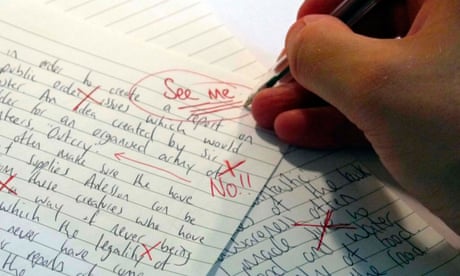As a professional writer, I have seen a lot of ‘snobbery’ around writing in general.
The publishing scene in London is a social ‘set’ all on its own and it’s renowned for being one of those industries that everyone is desperate to enter and ‘unthinkable’ to ever leave. Let me just say there is a ‘time and place’ for such an elitist approach (there is a reason writing is referred to as a ‘craft’ after all), but tearing down aspiring writers that are still finding their voice is not OK. Especially when it’s on Social Media.
I was horrified to see a young lady had been lambasted for using the word ‘writing’ three times in a sentence – on Facebook – on a post about ‘writing’ no less. There were various comments about the extent of her vocabulary to whether she was even qualified to write ‘said post’ on Facebook in the first place. Quite honestly I thought this said far more about the people making those comments than the poor woman herself.
When you are writing on Facebook, there is an assumption it is less formal – I often imagine I am talking to friends on Facebook so I will write the way I talk unless it’s on my business page. I must confess I do go back and edit if I notice any errors – purely because I am a writer by profession and it’s a compulsion. However, I do not go around picking up my friends or complete strangers for all their grammatical misdemeanours… If I have understood the intent of what is being said – then job done as far I’m concerned. Again – time and place. Oh, and I should say – I value my friendships.
I find it’s those that are the most insecure about their own skills that have to tear down other writers – to show how ‘right they are’. Most professional writers realise there is a big difference between words shared on a social media platform – and ‘other’ writing so unless they are a ‘pedant’ by nature, the ‘professional’ would generally take a day off.
Writing for publication takes dedication and hard work. It is a crafted work of art (even if it started life as Divine inspiration). Every word has a role to play on the page. What many of those keyboard warriors do not realise is, there are many different types of writing that fulfill diverse functions and guess what? There are different rules and styles at play depending on how that writing is to be used.
For example, as a copywriter selling the benefits of a product – or a corporate writer selling the personality of a brand, the task at hand is to influence, persuade, motivate or engage the audience. The benefits and the value propositions are important factors. Sometimes repeating that tagline, that message or that benefit is exactly what’s called for. Repetition is a powerful copywriting strategy with proven results. In this scenario, saying ‘writing’ three times in a sentence might be considered a stroke of genius!
If, however, you are a feature writer in editorial, you would use a completely different approach. You would avoid repetition and ensure you used a vocabulary suited to the audience of your publication.
The thing(s) to keep in mind in a professional context is that (a) you may have to write in house style for a ‘specific’ audience, (b) it is bad writing practice to use overly big words (you are actually identifying yourself as a novice writer by trying to be too clever – added to the fact you will just bore or confuse your readership). The intention behind any good writing is to remove all barriers to understanding. Your words should be understood by 11 and 12-year-olds, unless you are writing for a medical or science journal. In a professional context you write many drafts. MANY drafts. The first draft or two is generally just a brain dump of ideas. Your main concern is not about spelling or grammar – it’s the content or the concept – the exciting idea. Only after there has been feedback and sign-off on a direction – then a few more iterations down the track – only then does a professional writer start to look at the technical structure of each sentence.
If you are writing something to ‘sell’ (i.e., your words are part of the ‘product’) then yes, absolutely your words need to be pitch-perfect and that’s what editors and proof-readers are for. But in a social media setting? Come on people. We can all show a little humility. It’s not always important to be ‘right’.
There are so many people out there TERRIFIED to write something for fear that it’s wrong or for fear of judgement and ridicule. Many of these people have something of real value to say and that fear is stopping them from sharing what could be an important message for humanity.
In a professional context – go for your life, but next time you see a mistake on social media, please consider whether someone was just so excited to share an idea, that they didn’t take their time and due diligence to make sure they were word perfect. Perhaps English is their second language. Perhaps they are dyslexic but still care about having a ‘voice’. There are numerous reasons why someone’s writing may not be up to ‘professional’ standards, but please remember none of us ever know the whole story. It may have taken great bravery for them to say anything at all. Social Media is not the time or place to call people out – and certainly not those who are just finding their voice on a writing page. Right? Right!

